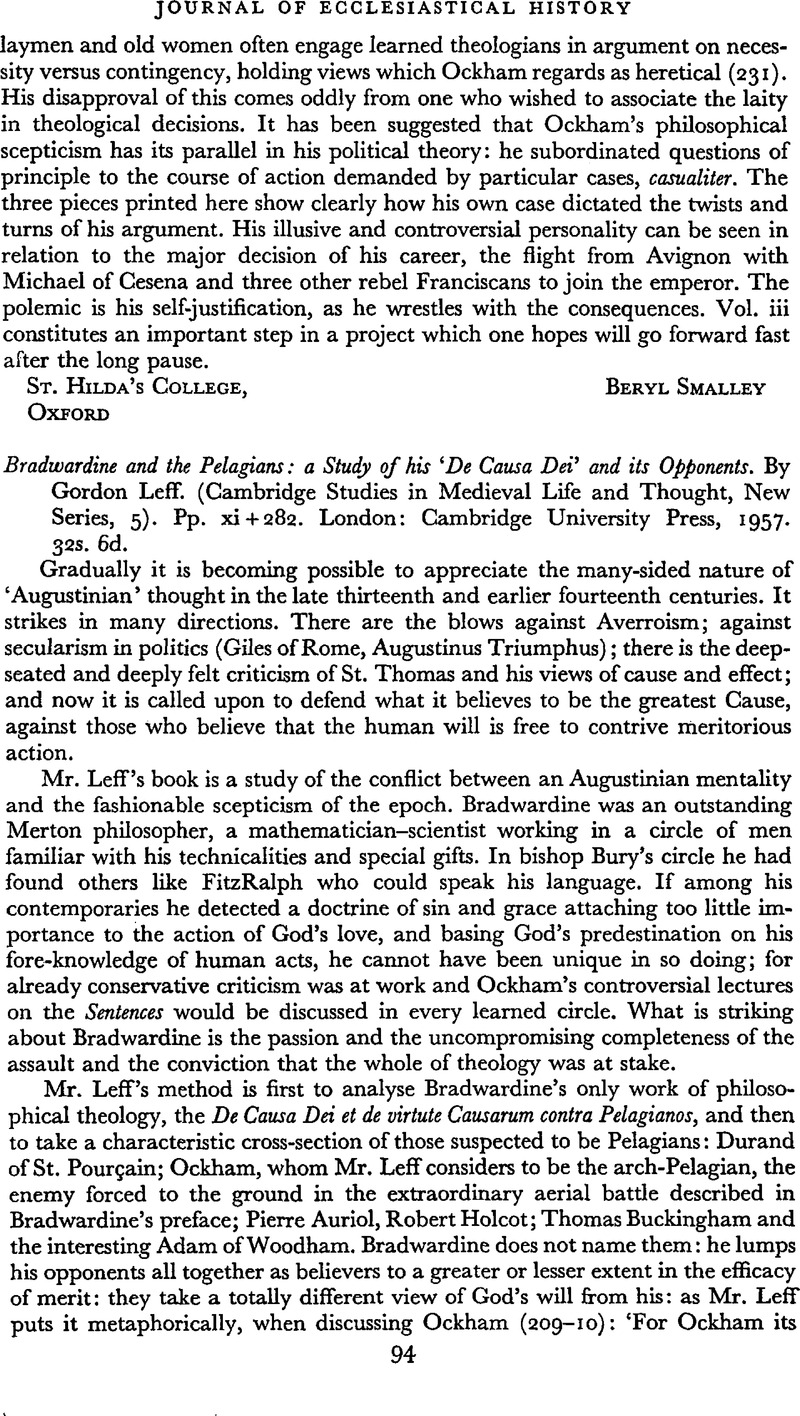No CrossRef data available.
Article contents
Bradwardine and the Pelagians: a Study of his ‘De Causa Dei’ and its Opponents. By Gordon Leff. (Cambridge Studies in Medieval Life and Thought, New Series, 5). Pp. xi + 282. London: Cambridge University Press, 1957. 32s. 6d.
Published online by Cambridge University Press: 25 March 2011
Abstract

- Type
- Reviews
- Information
- Copyright
- Copyright © Cambridge University Press 1958
References
1 ‘The human will is the starting point of a meritorious act. It is this autonomy and initiative which Ockham gives to free will which Bradwardine considers the greatest menace of the times, as his introduction to the De Causa Dei has shown. Only, he says, with grace acting upon it, can free will achieve good actions; grace comes before the will, in contrast to Ockham's view where it is not only secondary but superfluous’ (198).
page 96 note 1 Gregorianum, XXIX (1948), 212–23.Google Scholar




